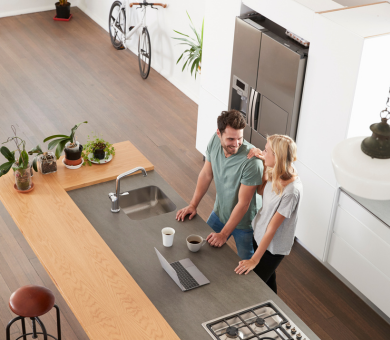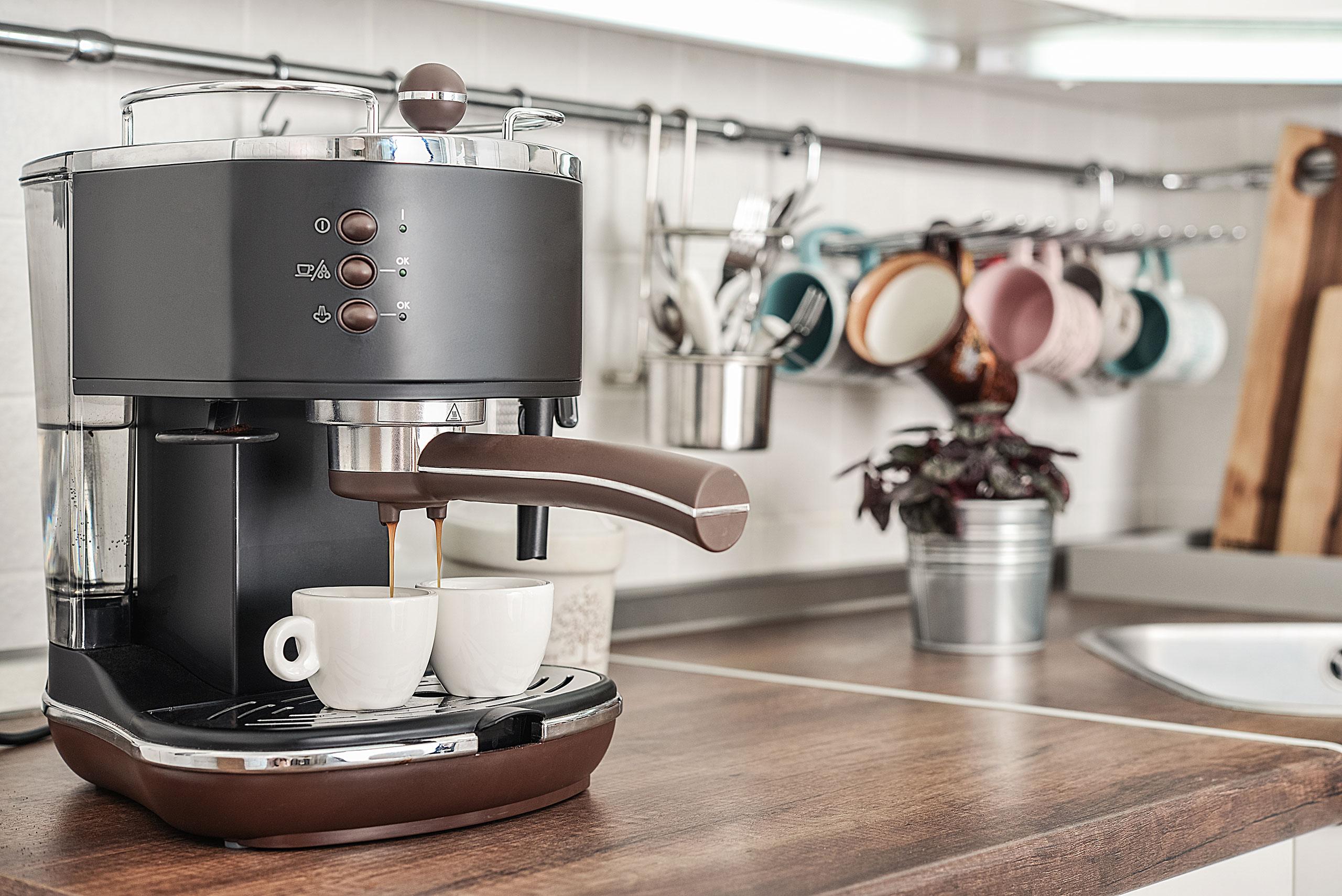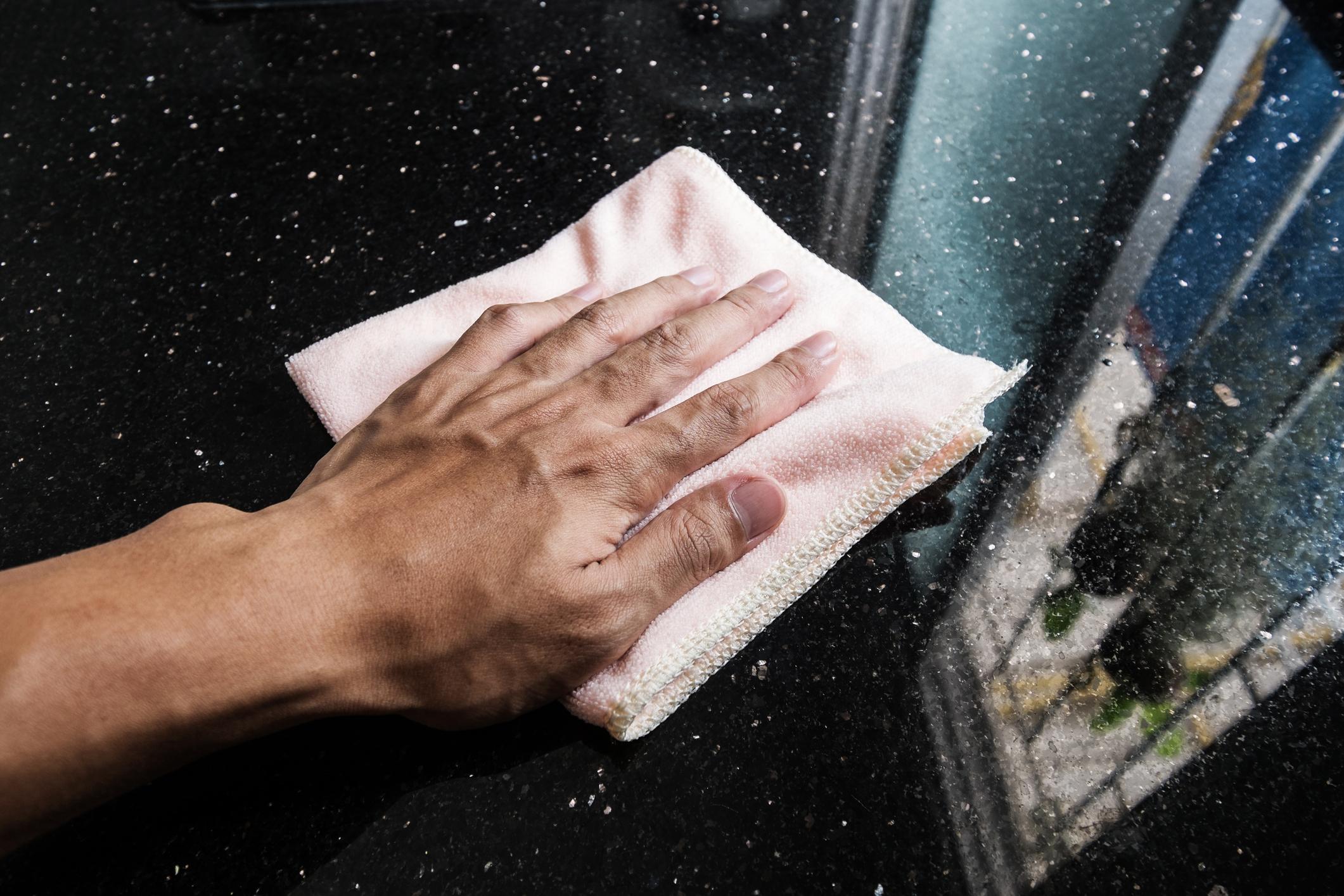
When choosing your kitchen tops or flooring, granite and marble come top of the list due to their robust, durable and long-lasting properties. The luxurious appearance and use of natural material is often the envy of many homeowners. Yet, despite the obvious beauty of these surfaces, they are porous and harder than most to keep clean.
Even spilling some water could cause a stain if you are not quick enough to mop up.
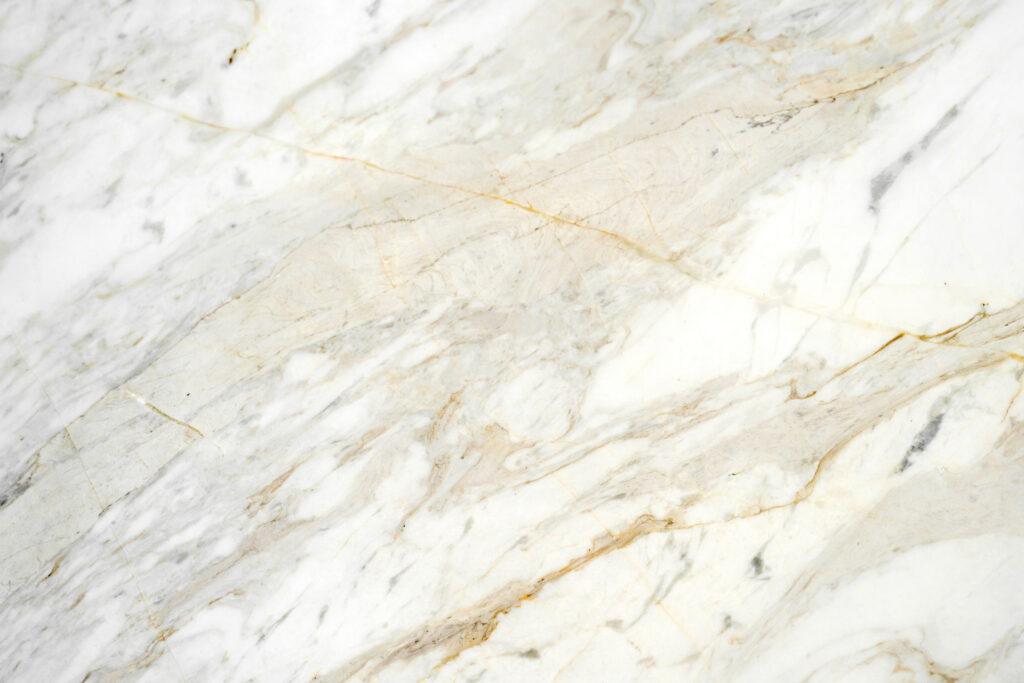
In this helpful guide from the Harvey Water Softener experts, we offer some hints and tips for keeping your granite and marble cleaner and sustaining the natural beauty of these materials.
Why choose granite and marble?
Despite the effort of cleaning granite and marble, they are still some of the most durable surfaces for your kitchen countertops and floors.
They take some maintenance yet still offer less chance of scratching and other wear and tear than other surfaces like wood and lino. While granite lasts longer and maintains its appearance for a greater period of time, marble is a super luxury material that retains its value and can actually result in higher property prices.
How to clean granite and marble worktops and floors
So, we’ve established that granite and marble are famed for their appearance and beauty, but just how can you keep them looking their best for years? Check out our top tips below.
Clean up spills
Protect your counter tops and floors from spills and heat damage. Some liquids like coffee and red wine or acidic fluids like vinegar and fizzy drinks, could stain your surfaces if you don’t wipe them away quickly enough.
It’s also not a good idea to store oily bottles of cooking oil on your counter tops because these could damage your surfaces too – instead, ensure these are placed in a cupboard or on a coaster or board.
If you’re cooking, you should also avoid putting hot pans and other cookware down directly on your counter tops because exposure to high heat could affect your work surfaces. It’s a good idea to use a heat proof mat such as a silicone mat or trivet to create a barrier between hot pans and worktops.
Even when you are tired or trying to juggle a million things during food prep, stop for thirty seconds and deal with the issue, or you could end up spending a few hours later dealing with a larger scale issue. Use a blotting motion when cleaning up the spill; do not rub or wipe. You can make the stain worse by rubbing the liquid into the surface rather than lifting it off.
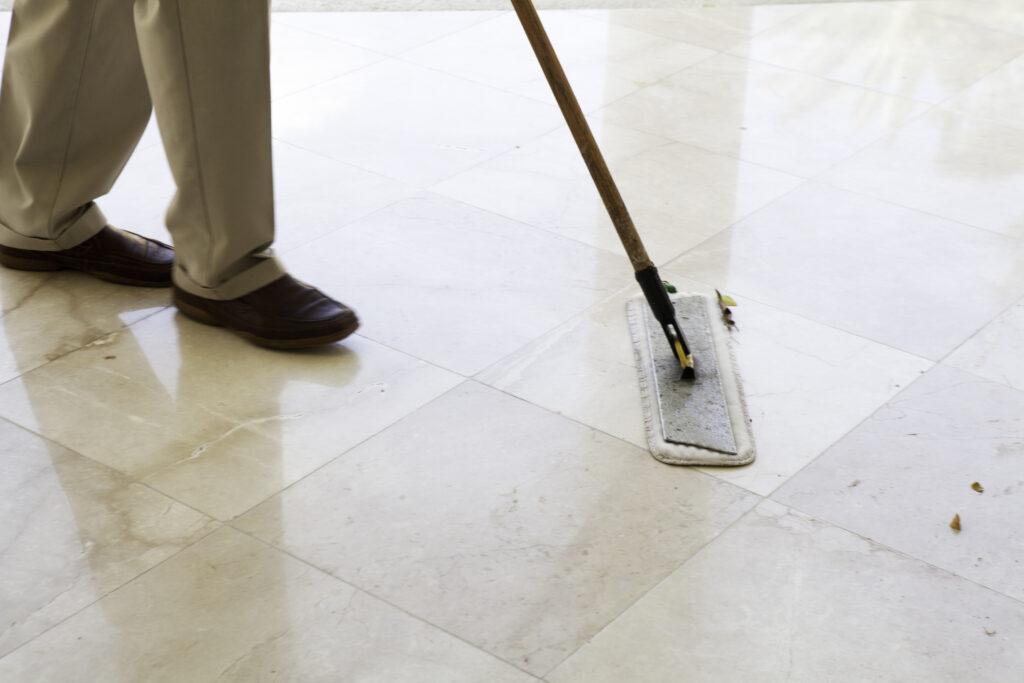
When it comes to your marble or granite floors, keep on top of sweeping dirt, especially if you have spill-prone children or drooling / muddy pawed pets. The longer a stain is left, the harder it will be to remove.
Do the basics right
While we have made marble and granite sound high maintenance, this is far from the truth. The trick is to do the basics right and regularly. Therefore, after cooking, you should clean surfaces straight away with warm water and washing up liquid, followed by a blotting motion with kitchen roll or a tea towel.
If you use this method after each use, you will be saved the job of a more thorough cleaning process. Be sure to use no more than a tablespoon of washing up liquid in a spray bottle filled with water for the best outcomes. Also, dry immediately after wiping, making sure to dab moisture from the surface rather than rubbing (which will cause your cloth to disintegrate).
Buy bicarbonate of soda
Sometimes after heavier use, your marble and granite need a more thorough clean. At these times, there is nothing more effective than bicarbonate of soda for lifting built-in grime.
Mix the bicarbonate of soda with water to make a paste-like mixture. Spray the area that needs cleaning, with water. Cover it with the mixture, then with cling film and leave it for 24 hours. Over this time, the bicarbonate of soda mixture will draw out the stain. Leave the mixture to dry, and then you can lift it off.
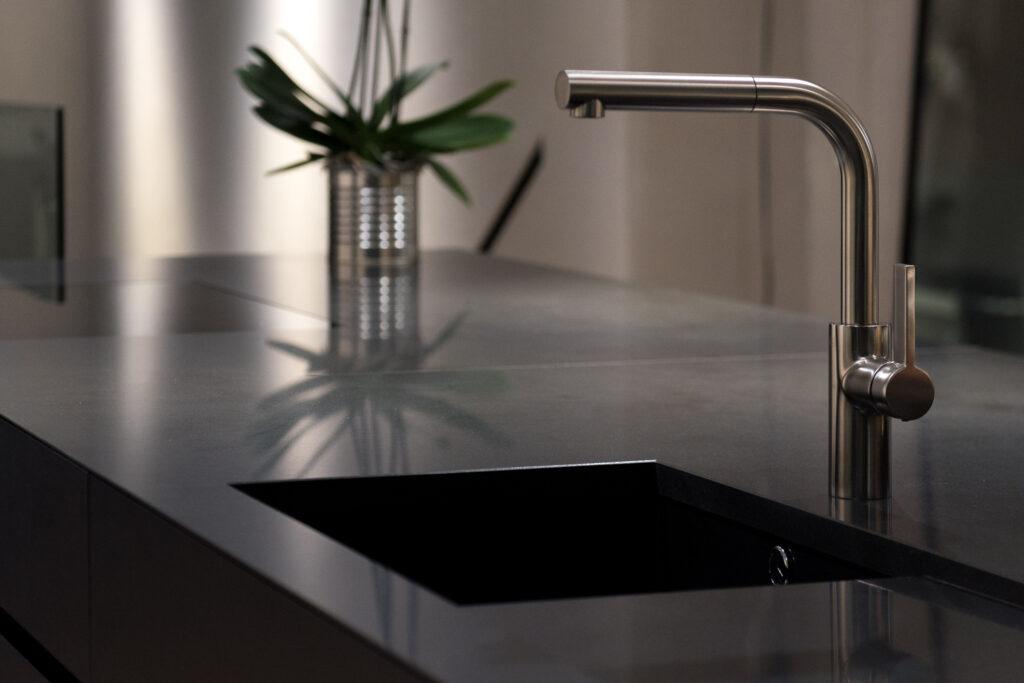
Test first
Whatever cleaning material you use with your granite and marble tops, you should test them on a small section first. Find a place where no one would spot if there were discolouration or scratching, and spray or wipe a small amount onto the surface. If it is too abrasive, you will know immediately that you cannot continue.
The best liquid to use on granite and marble is a mix of 91% isopropyl alcohol mixed in equal parts with water. It will leave the surface disinfected without causing damage.
How to remove hard water stains from granite
Hard water stains are caused when hard water comes into contact with surfaces of any type. These water marks are particularly prevalent in areas of the UK with hard water, like Hull, York, Doncaster and Ipswich.
While it’s not recommended to use anything too abrasive on your granite surfaces, hard water stains can be very difficult to remove after long periods of time. In this instance, you can safely treat annoying hard water stains with a paste mixture of bicarbonate of soda and water. Simply apply it to the affected area and scrub it carefully with a soft-bristled brush. Following that, rinse with water and dry completely with a clean microfibre cloth.
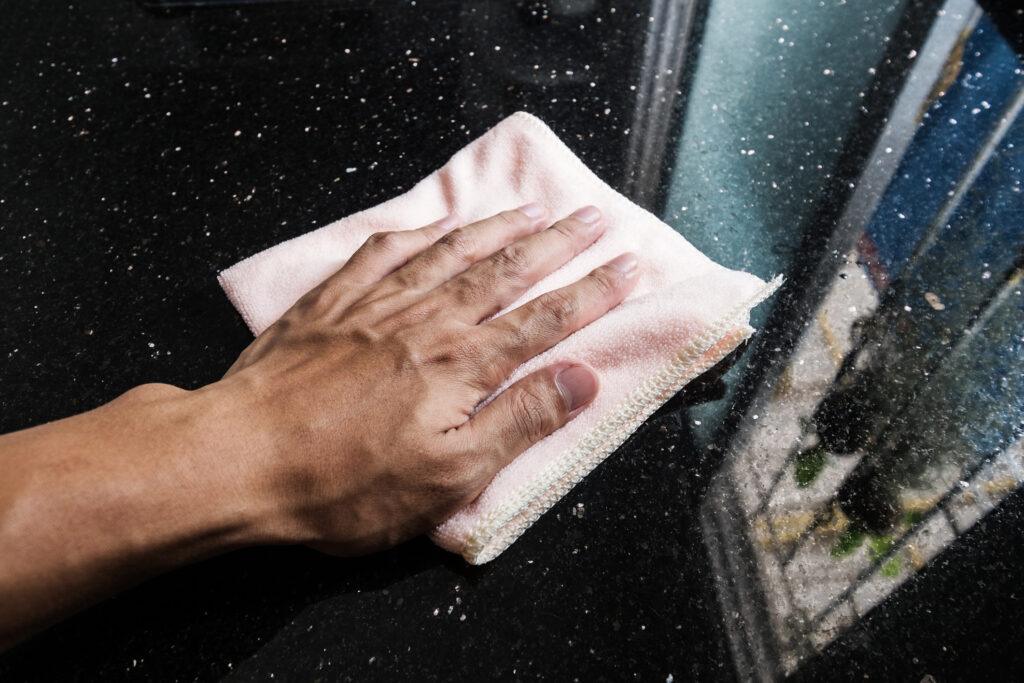
Banishing hard water stains from your home for good is difficult, but within reach. Investing in a softener like the Smart HarveyArc water softener removes calcium and magnesium from your water supply, the two minerals that contribute to hard water and limescale.
Conclusion
A granite or marble surface is a beautiful, tactile, and opulent addition to your home. With the right caare and attention, the work surface or floor will endure and offer pleasure throughout your life in your home.
If you’d like to learn more about how softened water could help your home, get in touch with the Harvey Water Softeners team today!
